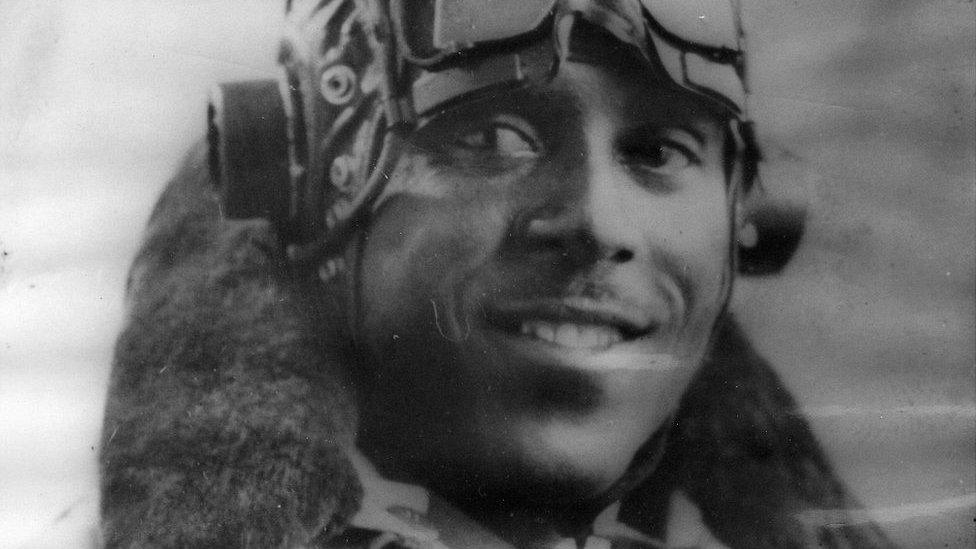WWII hero awarded blue plaque to mark legacy
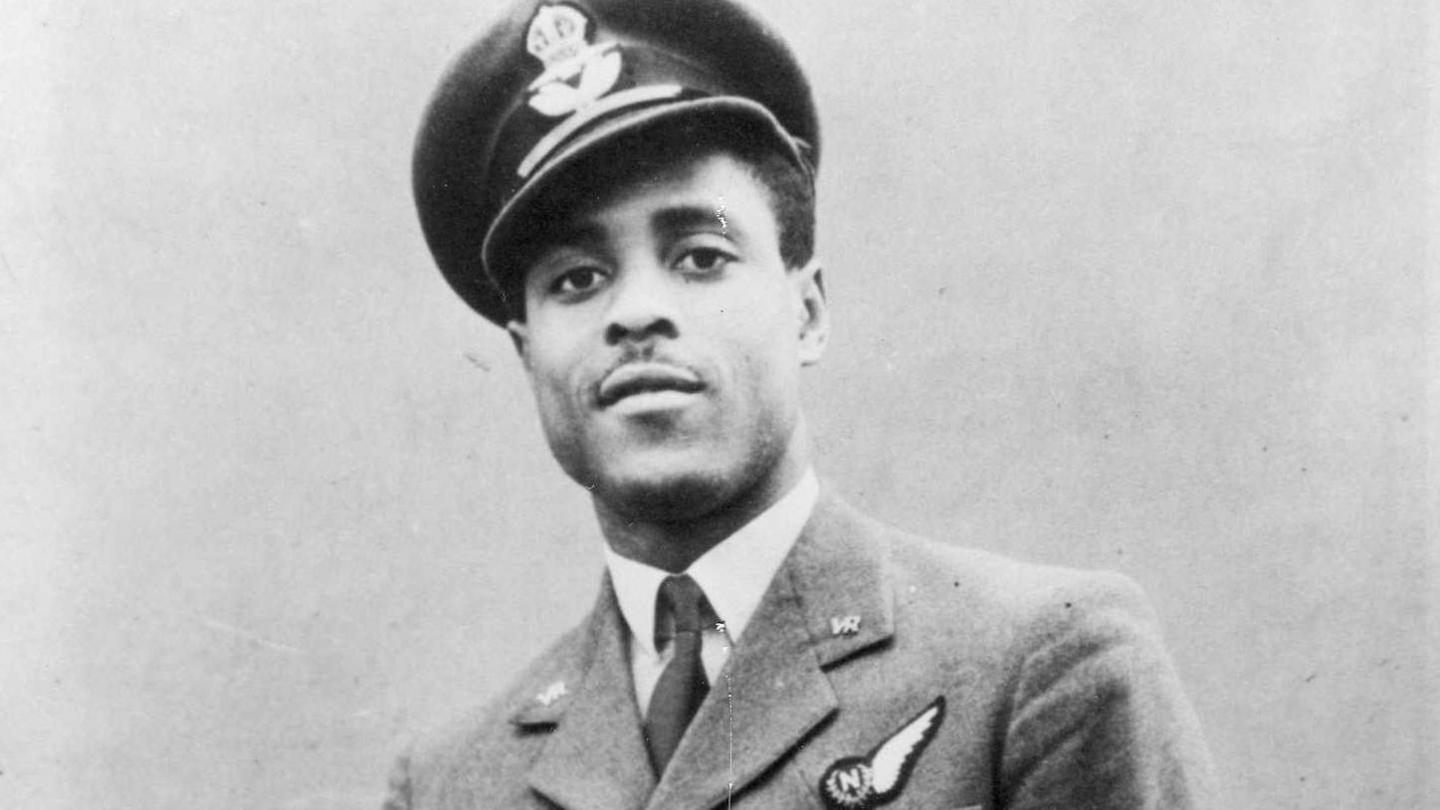
John Henry Smythe known as Johnny in his in RAF uniform
- Published
A blue plaque has been unveiled to commemorate a war hero and to mark his legacy.
John Henry Smythe, known as Johnny left Sierra Leone to join the RAF in 1941, then he became one of Britain's first black barristers before settling down in Thame, Oxfordshire.
Johnny passed away in 1996, but Thame Museum continues to remember its heroic resident with a "very special exhibition" and a blue plaque on his old house.
Eddy Smythe, his son said: "It sent chills through my body when the plaque was unveiled, seeing his name there, that recognition which he never sought, was amazing."
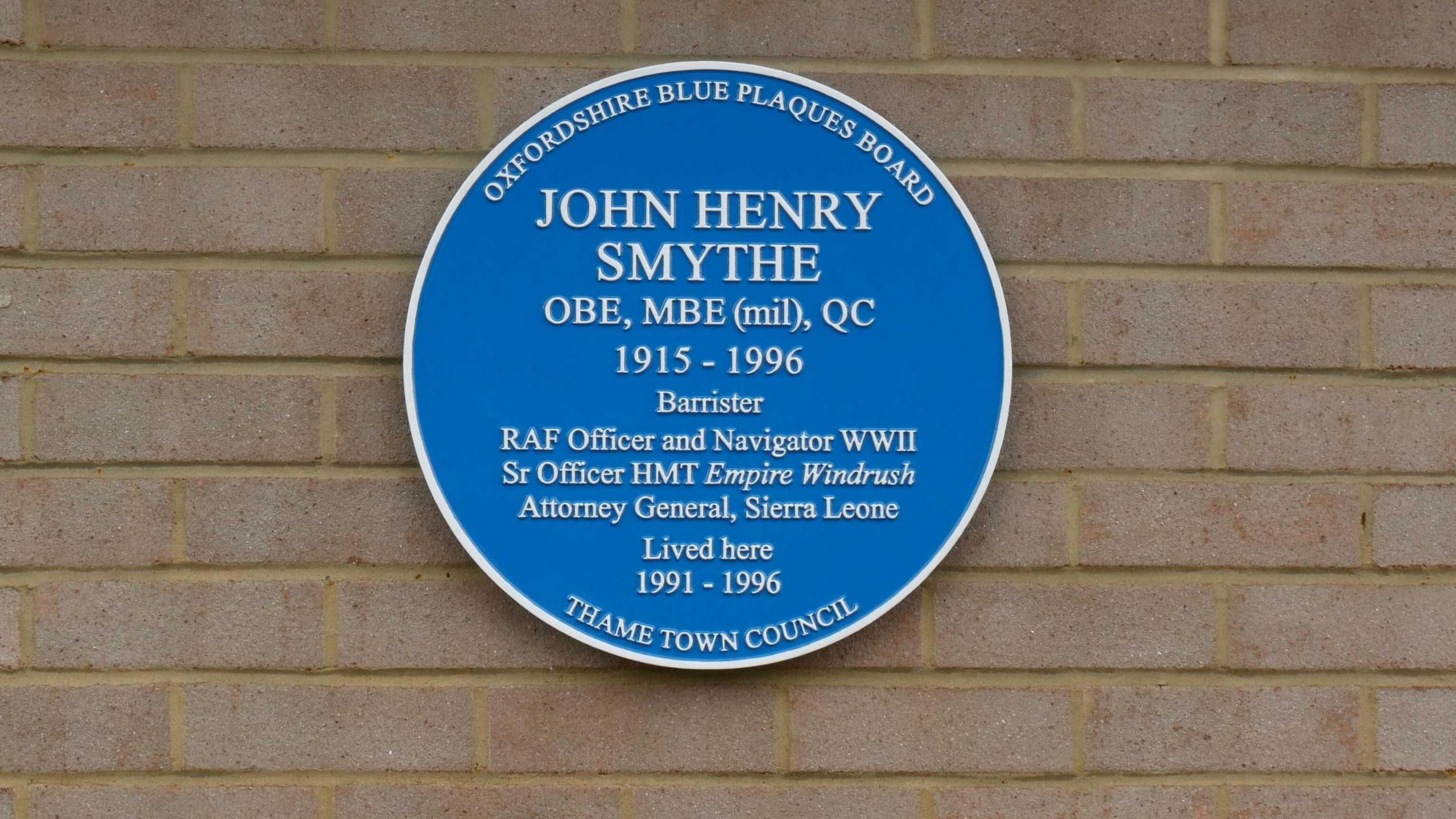
The blue plaque is outside Johnny Smythe's home in Thame.
Johnny was one of 60 men from the continent of Africa to serve as aircrew in the air force during the Second World War.
Having qualified as a navigator and been promoted to a flight officer, his son explained that he was posted to 623 squadron based at Downham Market, in Norfolk and "that's where he started his operations from".
"At that particular time in 1943, the attrition rate was really really high for bomber command and the planes where being shot down at a very very fast rate of knots.
"In fact Johnny, on his fifth operation, his fifth mission, which in fact was his 27th flight, he was shot down."
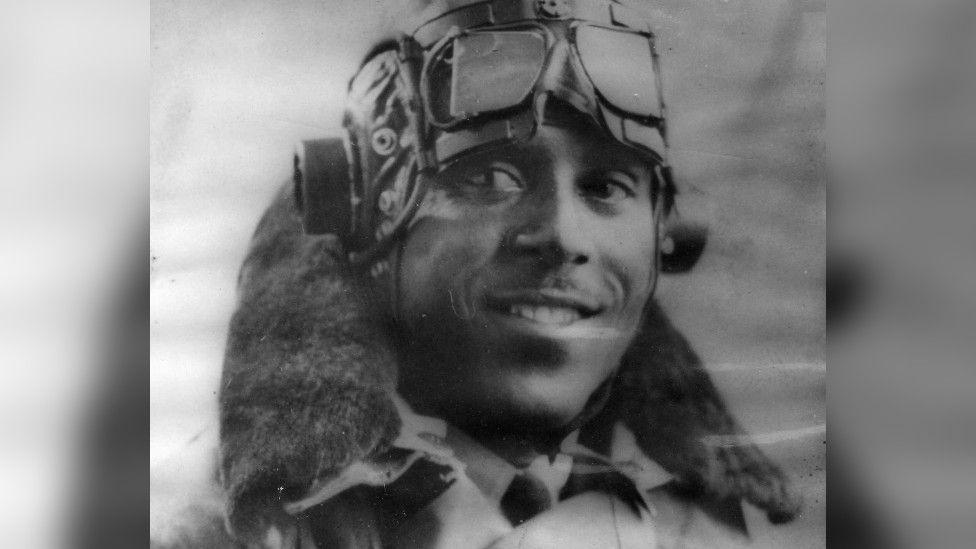
Johnny was part of Bomber Command during WWII
He made a successful parachute jump from the plane but was captured and spent 18 months in Stalag Luft 1 prisoner of war camp.
In 1951 he was awarded a military MBE.
Mr Smythe described his father as "very strong" and someone who promoted "very high morals and strong principles".
He recalls that his father "never talked about the war" as children he said "we knew he'd been in the war".
He said: "We could see the scar on his stomach where shrapnel had gone straight through him.
"He refused to talk about it. He threw away his uniform and his log book. As far as he was concerned, it was a chapter of his life which was firmly shut."
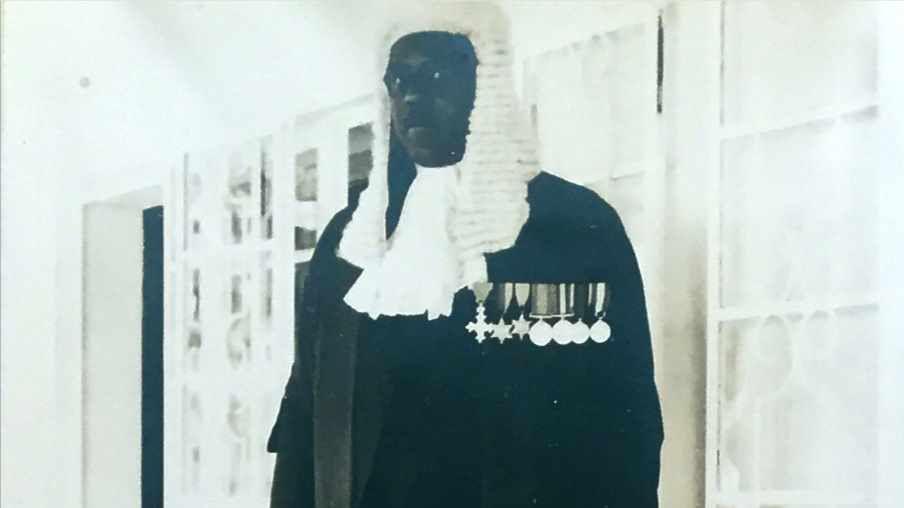
Johnny Smythe returned to Sierra Leone to practise law
After the war he returned to Sierra Leone, Mr Smythe explained that his father was a barrister who worked initially for the government.
Then he became Solicitor General and then Attorney General for the country.
He helped to write the new constitution in 1961 and later went into private practice and started his own law chambers.
He was awarded an OBE in 1978 for his services to government.
His son said he was "quite happy to talk about his career in law".
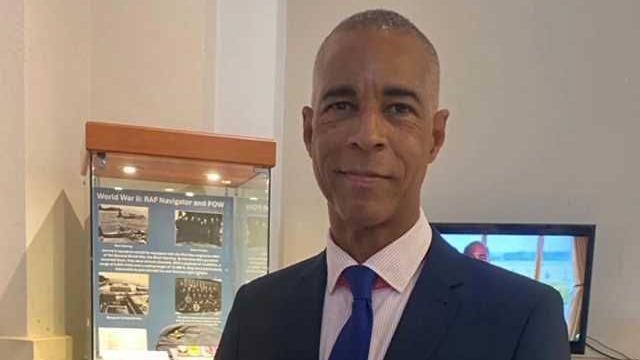
Eddy Smythe, Johnny's son at the Thame Museum in Oxfordshire
Johnny retired and spent his last five years in Thame to be close to his son, he's buried in St. Mary's churchyard.
Mr Smythe said it was "a very special moment" when Thame Museum decided to tell his life story - "it was enormous for the family".
He said: "Although people in Thame knew him, they had absolutely no idea about his achievements in life because he was relatively modest.
"I also don't think he quite understood what he achieved, I really don't think he ever comprehended it."
Mr Smythe said it was a "huge, huge honour" that the blue plaque committee bestowed the award on his father and is now fixed to his house in Thame.
The event held last Saturday was "well attended" by the mayor and deputy mayor of Thame, Oxfordshire County councillors as well as representatives from the RAF and Lord Williams' School where his life is part of the history syllabus.
He said: "It was a fantastic day, very humbling for the family and filled with lovely speeches."
Get in touch
Do you have a story BBC Oxfordshire should cover?
You can follow BBC Oxfordshire on Facebook, external, X (Twitter), external, or Instagram, external.
More like this
- Published10 November 2024
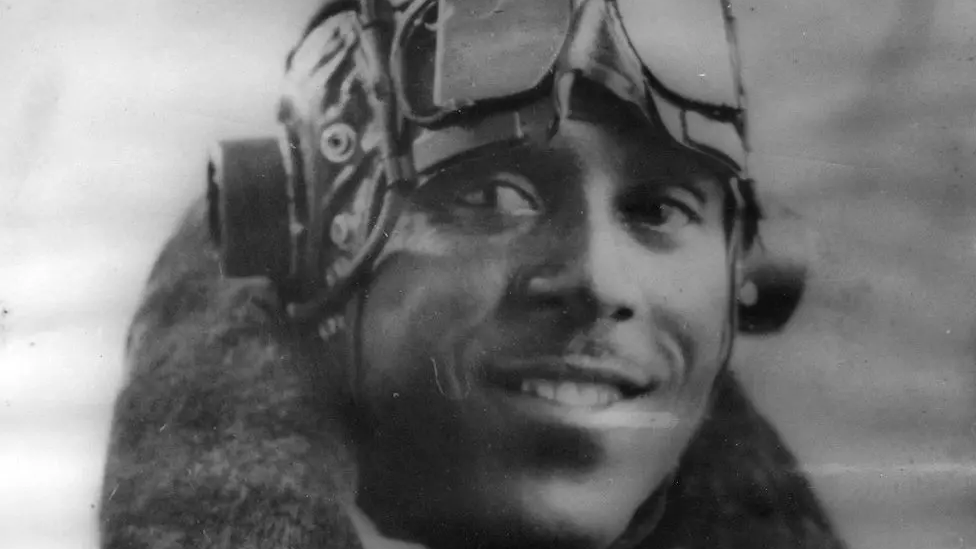
- Published8 January 2021
